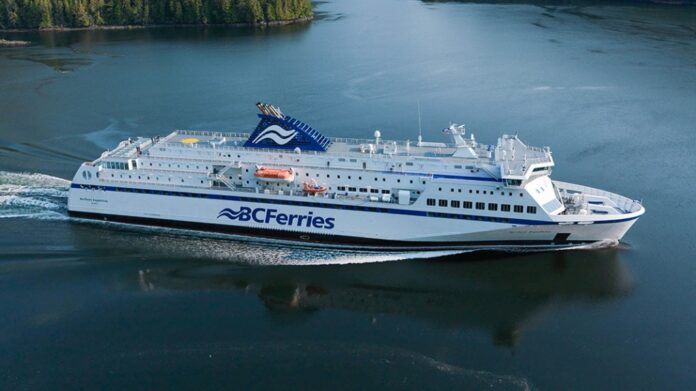For the second time this summer, BC Ferries believes one of its vessels made contact with a whale and has notified federal officials and local First Nations.
In a statement Thursday, the company explained that a humpback whale surfaced ahead of the Northern Expedition on Aug. 29 while the boat was travelling from Prince Rupert to Port Hardy.
“The crew put the engines in reverse, however they suspect they made vessel contact with the whale,” a spokesperson wrote in an email to CTV News.
As a result of the suspected collision, the company says it has reported the incident to the Fisheries and Oceans Canada, adding that the Northern Expedition will be operating at a slower speed in the vicinity of Mosley Point in the Inside Passage “for the foreseeable future.”
BC Ferries says it is also reaching out to local First Nations in hopes of collaborating on ways “to ensure our coastal waters are safe for marine life.”
This isn’t the first time the Northern Expedition has likely made contact with a whale. On July 20, BC Ferries believes the vessel made contact with a whale while sailing in the Wright Sound, describing the event as devastating for both the crew involved and the company as a whole.
BC Ferries says Fisheries and Oceans Canada was also contacted after the July incident, and that the company is fully cooperating with the ensuing federal review.
“Our unwavering commitment to the protection and preservation of these majestic mammals is woven into our day-to-day operations,” wrote BC Ferries.
In its statement Thursday, the company highlighted the fact that it’s the first ferry operator in North America to have developed a policy for vessel operation in the presence of marine animals.
BC Ferries says it has plans to work with the DFO and researchers to “leverage technological advances, including hydrophones and infrared cameras equipped with artificial intelligence, to help with the early detection of marine mammals.”
Source: CTV News

